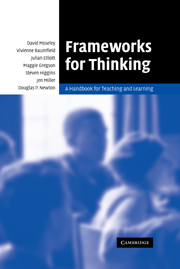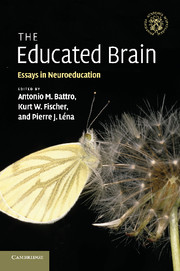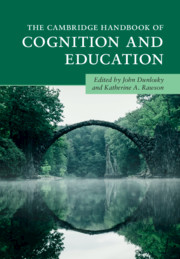Frameworks for Thinking
This handbook focuses on the thinking processes necessary for learning by providing descriptions and evaluations of 42 major frameworks--including Bloom's taxonomy, de Bono's lateral and parallel thinking tools, Gardner's theory of multiple intelligences and Paul's model of critical thinking. Unique in its comprehensive coverage and interdisciplinary approach, it offers easy-to-grasp summary tables for each major theorist for speedy reference. A valuable tool for students needing to understand different ways of thinking, it will also be an essential resource for teachers, curriculum developers, researchers and policy-makers.
- Comprehensive coverage of key frameworks for thinking with easy-to-use summary tables
- Multidisciplinary approach promotes critical thinking
- Practical approach and advice useful to students, teachers, curriculum developers and policy makers
Reviews & endorsements
'… concludes with a recommendation of three complementary frameworks which provide comprehensive coverage and will provide much food for thought for all those interested in extending their knowledge and application of thinking skills approaches.' Learning & Teaching
'For teachers, clinicians and psychotherapists … this book is a fabulous source of new knowledge that can only foster their critical thinking over how they teach and how they heal.' Canadian Academy of Child and Adolescent Psychiatry
Product details
January 2006Hardback
9780521848312
380 pages
229 × 152 × 25 mm
0.73kg
29 tables
Available
Table of Contents
- Introduction
- 1. The nature of thinking and thinking skills
- 2. Lists, inventories, groups, taxonomies and frameworks
- 3. Frameworks dealing with instructional design
- 4. Frameworks dealing with productive thinking
- 5. Frameworks dealing with cognitive structure and/or development
- 6. Seven 'all-embracing' frameworks
- 7. Moving from understanding to productive thinking: implications for practice.




